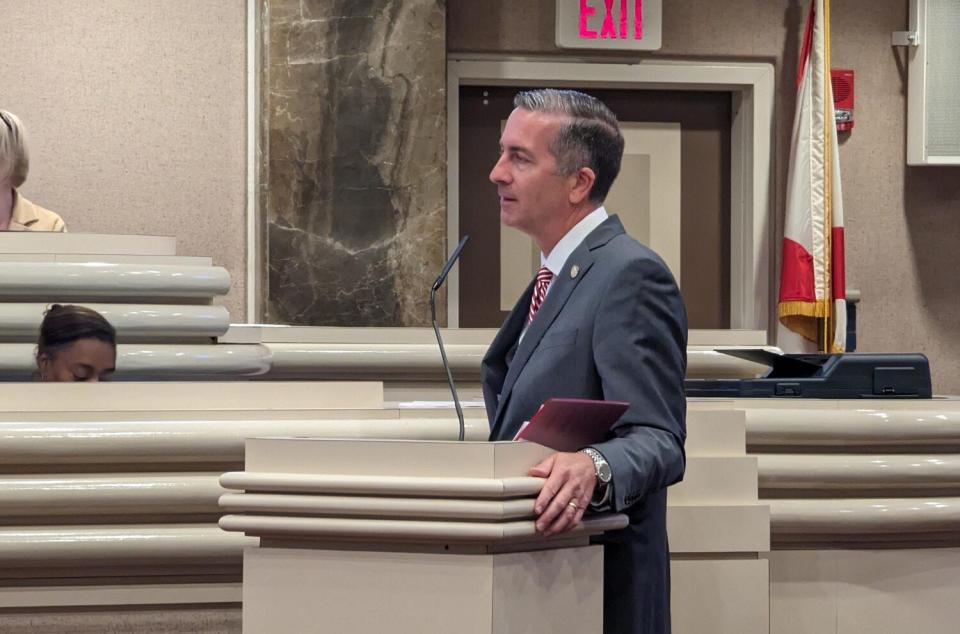Senate committee OKs bill criminalizing absentee ballot help but reduces penalties
The Alabama Senate State Governmental Affairs Tuesday approved a bill that would criminalize some forms of assistance for absentee voting.
But the committee voted to reduce some penalties and to add language clarifying that it is not a crime to help a person with a disability fill out an absentee ballot.
The legislation, sponsored by Rep. Jamie Kiel, R-Russellville, would make it a crime to fill out or deliver an absentee ballot or application to another person, or to accept or make a payment for doing so.
The legislation comes after years of former President Donald Trump lying about voter fraud during the 2020 presidential election.
“We want to make sure that there’s no opportunity for criminal behavior to happen or fraudulent behavior to happen,” Kiel said to reporters after the meeting. “So what we don’t want is someone to be unduly influenced while either filling out their application or when they take the ballot. We don’t want the person to be unduly influenced and the people that we listed are people that should be trusted.”

As filed, the bill would have made it Class D felony, punishable by up to five years in prison, to fill out or deliver an absentee ballot to another person, though the legislation provided some exceptions. Accepting money for filling out a ballot would be a Class C felony, punishable by up to 10 years in prison, and paying for a ballot would be a Class B felony, punishable by up to 20 years in prison.
But the committee reduced the penalty for assisting another person with an absentee ballot to a Class A misdemeanor, punishable by up to a year in jail.
The committee amendment also said that it is not a crime to assist a person with a disability with a ballot. The felony punishments for giving or accepting money for filling out an absentee ballot remain in place.
Prior to the amendments, opponents of the bill said it would hurt the ability of people with disabilities to vote.
Honesti Steele, who identified herself as blind and as a 23-year-old University of Alabama student, said this bill would damage her ability to vote.
While the bill allows people to receive assistance from government officials; people who are up to second degree family members or co-residents of more than six months, Steele said as a student, she doesn’t live near her family, and hasn’t lived with anyone for more than six months.
“More importantly, this bill indirectly silences the disabled, a community full of citizens who should be granted the right to vote without restrictions related to their disabilities,” she said. “Although this bill is proposed to reduce election fraud, I just hope that we take into consideration the large impact that it has on the disabled community.”
Sen. Merika Coleman, D-Pleasant Grove, said after the public hearing that she has a great-aunt who sometimes gives her two dollars for gas. Under the terms of the bill, she said. The exchange of the two dollars would make them both criminals, she said.
Coleman also spoke about her time on a committee — the “Voter Fraud Reform Task Force” — looking into potential voting fraud in Alabama and found no widespread fraud.
“I don’t know who this is for if we have not had those incidents in the state of Alabama,” she said.
The bill goes to the Senate floor.
Alabama Reflector is part of States Newsroom, an independent nonprofit website covering politics and policy in state capitals around the nation.
This article originally appeared on Montgomery Advertiser: Alabama senators reduce penalties in bill about absentee ballot help

